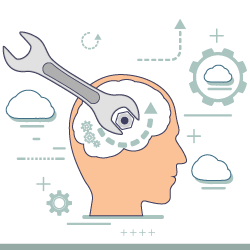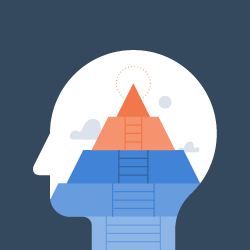Building Your Child's Critical Mind

Dr. Salah Saleh Mammar
Creativity
23
The most profound people I learned about thinking and its skills from were Richard Paul & Linda Elder, founders of the Foundation for Critical Thinking. I still remember their pivotal role in shifting my focus to more interest in building critical thinking skills for children before adults. I still have a paper in which I summarized what I learned from them regarding the 5 most important strategies that help build a critical mindset for children.
1. Clarity:
Your child should be encouraged to be clear in sending and receiving, meaning he should get used to being clear in his speech, requests, questions and interventions. You should stop him and ask him for further clarification so that he can present his message with complete clarity. At the same time, you should get him used to asking questions and requesting clarification in matters that he does not understand, and get him used to searching in all available ways to make matters clearer without fear or shame.
2. Accuracy:
Your child should be encouraged to always strive for accuracy and to search for the truth, and not to accept false knowledge that is not based on evidence and citations. He should get used to methods of investigating facts and using them in sending and receiving information, knowledge and data, until he becomes able to distinguish between truth and opinion, between weak and strong citations and between good and misleading evidence.
3. Linking:
You should teach your child the importance of connecting sending and receiving, and encourage him to stay on track and not get distracted when discussing a topic, while at the same time not accepting any interventions or citations that are far from the topic’s focus. This will raise his skills of induction, deduction and inference from an early age.
4. Logic:
You should encourage your child to be logical, by training him to follow a logical sequence to reach conclusions, and not allowing him to jump to conclusions. If he makes a decision or issues a judgment, you should talk to him and ask him about how he reached those judgments, decisions, or conclusions, and ask him to prove that or correct it.
5. Comprehensiveness:
Your child must be trained to be comprehensive in his outlook, aware of all factors related to the subject, and at the same time accepting and open to all angles of the subject, able to respect all opinions and filter them, and not to be self-centered, considering all his opinions as facts and all the opinions of others as mere points of view!
So it is important to raise your child’s level of curiosity, as well as raise his problem-solving skills, observation and interpretation skills, the skill of asking thought-provoking questions, the skill of collecting, classifying and applying information, and other critical thinking skills that are tools for achieving the five strategies mentioned above.
The child's critical mind
- Clear in reception and transmission
- Accurate based on facts and sources
- Links observation and interpretation
- logical in conclusion
- All factors are considered
Did you benefit from the information provided on this page?
visitors liked this page



